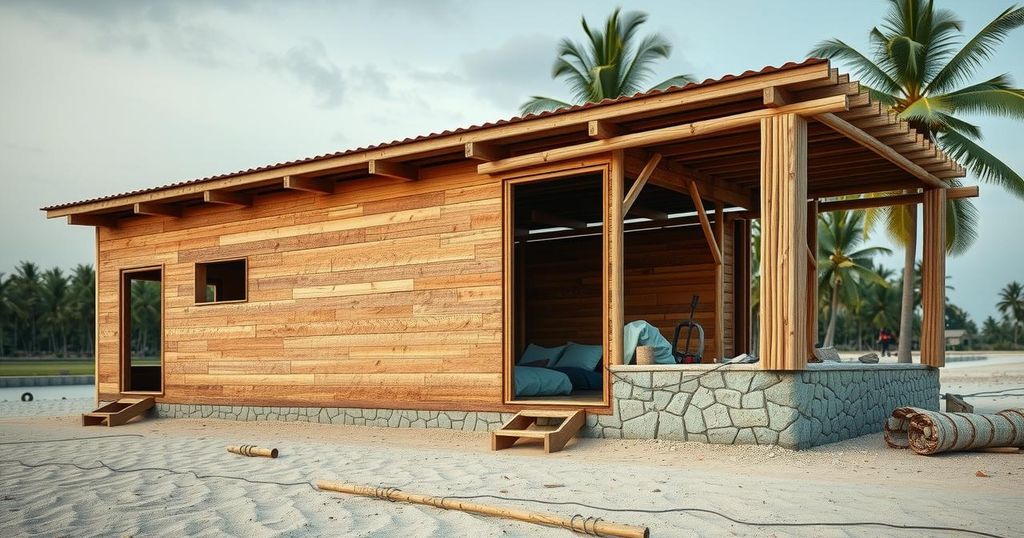Mozambique Constructs Shelters for Cyclone Chido Victims Amid Devastation

Mozambique has begun constructing shelters for victims of Cyclone Chido, which killed at least 70 people and injured 600. Trade and Industry Minister Silvino Moreno underscores the need for durable homes and training to prevent future destruction. The cyclone caused significant damage in Mozambique and southern Malawi, impacting thousands of lives and critical infrastructure, heightening the risk of worsening health situations due to existing outbreaks.
This week, Mozambique commenced the construction of shelter for victims of Cyclone Chido, which struck three northern regions of the country on Sunday, resulting in the deaths of at least 70 individuals and injuring 600 more. Trade and Industry Minister Silvino Moreno, visiting the impacted areas, noted the government’s commitment to providing assistance, supplemented by efforts from international partners. He emphasized the need for durable housing materials to withstand future storms, as many homes currently built with mud and reeds were easily destroyed by the cyclone.
Prior to affecting Mozambique, Cyclone Chido wreaked havoc in Mayotte, causing significant fatalities and infrastructure damage, particularly impacting vulnerable groups like asylum-seekers and refugees. The cyclone also impacted southern Malawi, leading to destruction in various regions due to strong winds and heavy rainfall. Mozambique’s meteorology agency has alerted citizens to anticipate more storms in the ensuing three months of the rainy season, advocating for enhanced preparedness to mitigate further devastation.
UNICEF estimates that approximately 174,000 individuals have already been affected, with a potential increase as damage assessments continue. The cyclone has not only destroyed numerous homes but has also damaged around several thousand classrooms and 20 health facilities. Michael Chimedza, UNICEF’s head of the field office in Zambezia province, stated, “We have requisitioned items so we can immediately respond to 50,000 people,” alongside providing funds for local response training. Significant infrastructure, including health units, roads, and water supply sources in Nampula, Cabo Delgado, and Niassa provinces has also been severely affected, leaving over 25,000 families without electricity.
The recent disaster comes at a precarious time as the region is already grappling with a cholera outbreak. Aid agencies warn that the resultant devastation from Cyclone Chido may exacerbate existing health issues, necessitating urgent attention and support from the international community.
Cyclone Chido caused widespread destruction in Mozambique and its neighboring regions, highlighting the country’s vulnerability to severe weather events. The cyclone’s impact has not only resulted in loss of life but also significant infrastructure damage, affecting schools, health facilities, and essential services. Humanitarian agencies are currently mobilizing to provide relief as assessments of the damages continue, amid warnings of further storms during the rainy season. The importance of using resilient construction materials for homes is also underscored to prevent future calamities.
In summary, Mozambique is taking crucial steps to address the devastation caused by Cyclone Chido by constructing resilient shelters for the affected populations. As the country prepares for more storms in the rainy season, the emphasis on improved construction standards and community training becomes paramount. The ongoing humanitarian efforts reflect the immediate response needed to aid not only those impacted directly by the cyclone but also address the wider implications such disasters have on public health, especially amid ongoing disease outbreaks.
Original Source: www.voanews.com







